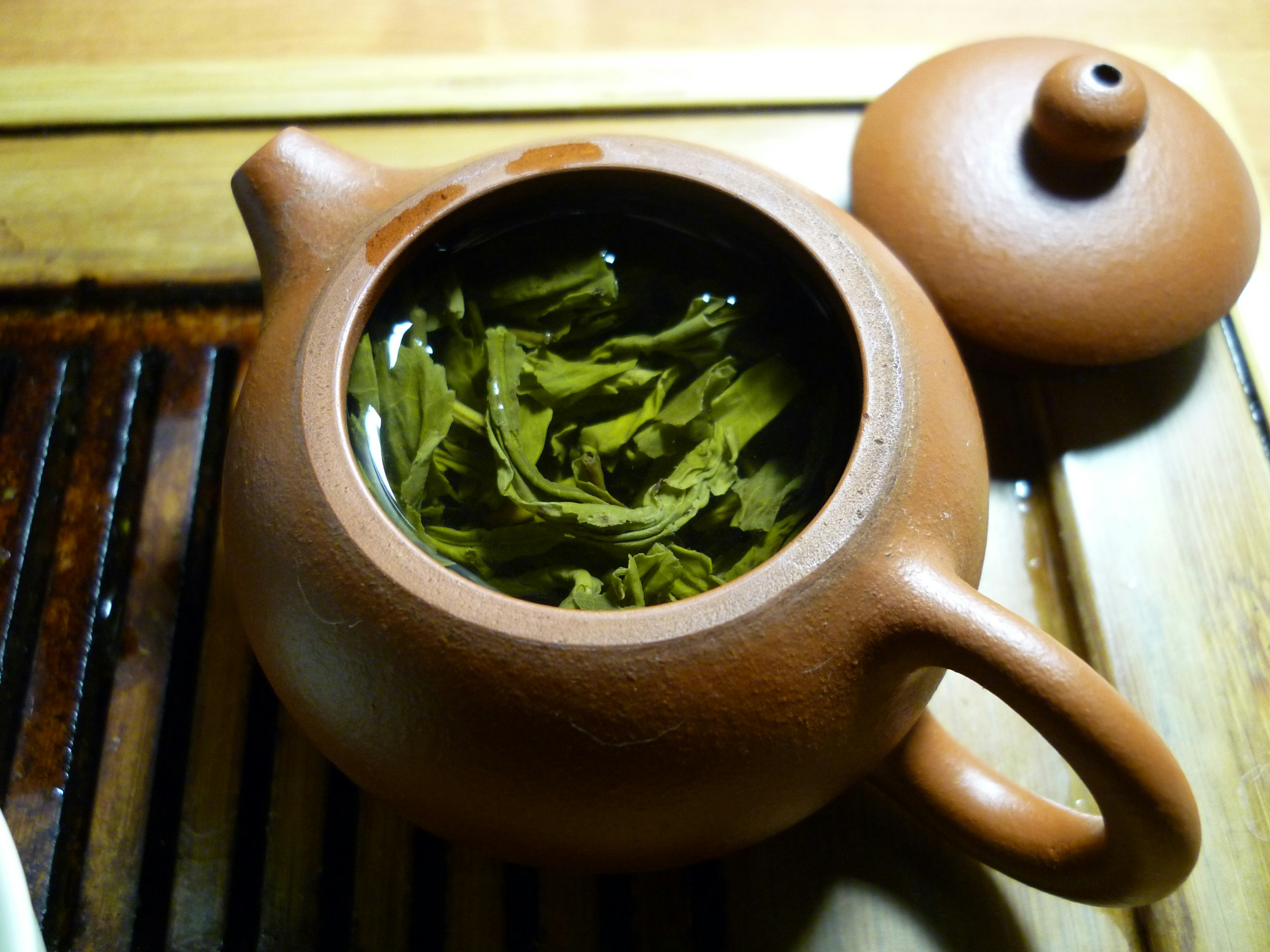Does Green Tea Have Anti-inflammatory Properties And Can It Help With Conditions Like Arthritis?
Green tea, a popular beverage consumed by millions around the world, has long been recognized for its numerous health benefits. One particular area of interest is its potential anti-inflammatory properties, and its potential in alleviating conditions such as arthritis. This article explores the question of whether green tea possesses anti-inflammatory properties and investigates its effectiveness in managing arthritis and similar conditions. By examining scientific research and the latest studies, this article aims to provide a comprehensive understanding of the potential role of green tea in addressing inflammation and its impact on conditions like arthritis.
Understanding Green Tea
What is green tea?
Green tea is a type of tea that is made from the leaves of the Camellia sinensis plant. Unlike black tea, which is fermented, green tea is made by steaming or pan-frying the leaves to prevent oxidation. This preservation of natural compounds gives green tea its unique flavor and potential health benefits.
Composition of green tea
Green tea is rich in bioactive compounds that contribute to its potential health benefits. The primary active compounds in green tea include polyphenols, particularly catechins, which are powerful antioxidants. The most abundant catechin in green tea is epigallocatechin gallate (EGCG), which is known for its anti-inflammatory properties. Green tea also contains vitamins, minerals, and caffeine, albeit in smaller amounts compared to black tea or coffee.
Anti-Inflammatory Properties of Green Tea
Overview of inflammation
Inflammation is a natural response of the immune system to protect the body from injury or infection. However, chronic inflammation can lead to various health problems, including cardiovascular diseases, arthritis, and certain types of cancer.
Studies on green tea’s anti-inflammatory effects
Numerous studies have investigated the potential anti-inflammatory effects of green tea. The polyphenols in green tea, particularly EGCG, have been shown to have strong anti-inflammatory properties in both laboratory and animal studies. These compounds can inhibit the production of pro-inflammatory molecules and signaling pathways involved in inflammation.
Mechanisms of green tea’s anti-inflammatory properties
The anti-inflammatory properties of green tea are attributed to its ability to modulate various molecular pathways involved in inflammation. EGCG has been found to inhibit the activity of nuclear factor kappa B (NF-kB), a protein complex that regulates immune responses and plays a crucial role in inflammation. Green tea also affects other inflammatory signaling molecules, such as interleukins and tumor necrosis factor-alpha (TNF-α), further contributing to its anti-inflammatory effects.
Green Tea and Arthritis
What is arthritis?
Arthritis is a term used to describe inflammation of the joints, which can cause pain, stiffness, and swelling. There are different types of arthritis, including rheumatoid arthritis, osteoarthritis, and gout, each with its own underlying causes and symptoms.
Benefits of green tea for arthritis
Studies have suggested that green tea may have therapeutic effects for arthritis due to its anti-inflammatory properties. The polyphenols in green tea can help reduce inflammation in the joints, potentially alleviating symptoms associated with arthritis. These findings have led to increased interest in using green tea and its extracts as a complementary treatment option for arthritis.
Research studies on green tea and arthritis
Several research studies have investigated the effects of green tea on arthritis. In a study published in the “Arthritis Research & Therapy” journal, researchers found that EGCG treatment reduced inflammation and joint destruction in a mouse model of rheumatoid arthritis. Another study published in the “Journal of Medicinal Food” reported that green tea extract improved symptoms and reduced disease severity in patients with osteoarthritis. These findings provide promising evidence for the potential benefits of green tea in managing arthritis.
Green Tea’s Effects on Inflammation Biomarkers
C-reactive protein (CRP)
C-reactive protein (CRP) is a marker of inflammation in the body. High levels of CRP are associated with increased risk of chronic diseases, including cardiovascular diseases and certain types of cancer. Studies have shown that green tea consumption can lead to a decrease in CRP levels, suggesting its potential role in reducing systemic inflammation.
Interleukin-6 (IL-6)
Interleukin-6 (IL-6) is a pro-inflammatory cytokine that plays a key role in the immune response. Elevated levels of IL-6 have been linked to chronic inflammation and various diseases. Research suggests that the polyphenols in green tea can inhibit the production of IL-6, potentially reducing inflammation and preventing associated health problems.
Tumor necrosis factor-alpha (TNF-α)
Tumor necrosis factor-alpha (TNF-α) is a potent pro-inflammatory cytokine involved in various inflammatory diseases, including rheumatoid arthritis. Studies have demonstrated that green tea catechins can suppress TNF-α production, providing further evidence of green tea’s anti-inflammatory effects.
Green Tea Consumption and Disease Prevention
Other conditions related to inflammation
In addition to arthritis, chronic inflammation is associated with several other conditions, such as cardiovascular diseases, inflammatory bowel diseases, and diabetes. The anti-inflammatory properties of green tea make it a potential preventive and therapeutic option for these diseases as well.
Cardiovascular diseases
Cardiovascular diseases, including heart disease and stroke, are the leading causes of death worldwide. Chronic inflammation plays a significant role in the development and progression of these diseases. Research has shown that green tea consumption is associated with a reduced risk of cardiovascular diseases, mainly due to its anti-inflammatory and antioxidant properties. Green tea’s ability to improve blood lipid profiles, reduce blood pressure, and prevent arterial plaque formation further contribute to its protective effects on the cardiovascular system.
Inflammatory bowel diseases
Inflammatory bowel diseases (IBD), such as Crohn’s disease and ulcerative colitis, are characterized by chronic inflammation in the gastrointestinal tract. Studies have suggested that green tea catechins can help alleviate symptoms and reduce inflammation in patients with IBD. The anti-inflammatory effects of green tea may be beneficial in managing these chronic conditions and improving the quality of life for affected individuals.
Diabetes
Diabetes is a chronic metabolic disorder characterized by elevated blood sugar levels. Chronic inflammation is believed to play a significant role in the development of diabetes and its complications. Green tea consumption has been associated with a reduced risk of developing type 2 diabetes. The antioxidants and polyphenols in green tea have been shown to improve insulin sensitivity, regulate blood sugar levels, and reduce inflammation, all of which are important in managing diabetes.
Optimal Green Tea Intake for Anti-inflammatory Effects
Recommended daily intake
While there is no specific daily intake recommendation for green tea, studies suggest that consuming 2-3 cups of green tea per day can provide significant health benefits. It is important to note that individual responses to green tea may vary, and it is advisable to consult a healthcare professional or a registered dietitian for personalized recommendations.
Dosage considerations
Green tea is generally safe for most people when consumed in moderate amounts. However, excessive consumption of green tea can lead to side effects due to its caffeine content. It is recommended to limit green tea intake to a moderate level to avoid adverse effects and to consider the overall caffeine intake from other sources.
Best preparation methods
To maximize the potential health benefits of green tea, it is recommended to brew green tea using hot water that has been cooled slightly to around 160-180°F (70-80°C). Steeping green tea at this temperature range for 2-3 minutes allows for optimal extraction of beneficial compounds while minimizing bitterness. Adding lemon or a squeeze of citrus juice to green tea can enhance the absorption of catechins due to the presence of vitamin C.
Potential Side Effects and Precautions
Caffeine content
Green tea contains caffeine, although in lower amounts compared to coffee or black tea. While moderate caffeine intake is generally safe for most individuals, excessive consumption can lead to side effects such as restlessness, gastric upset, and sleep disturbances. Those who are caffeine-sensitive or have certain medical conditions should be cautious and consider reducing their intake or opting for decaffeinated green tea.
Interactions with medications
Green tea can interact with certain medications, including blood thinners and medications for hypertension or depression. The catechins in green tea can inhibit the activity of enzymes responsible for drug metabolism, potentially leading to altered drug levels in the body. It is important to consult a healthcare professional if you are taking any medications to ensure there are no potential interactions with green tea.
Allergic reactions
Although rare, some individuals may experience allergic reactions to green tea. Symptoms may include hives, itching, swelling, or difficulty breathing. If you experience any allergic symptoms after consuming green tea, it is advisable to discontinue use and seek medical attention.
Other Natural Anti-inflammatory Options
Turmeric
Turmeric is a spice commonly used in Asian cuisine and is known for its vibrant yellow color. It contains a compound called curcumin, which has potent anti-inflammatory effects. Adding turmeric to your diet or taking curcumin supplements may provide additional anti-inflammatory benefits.
Ginger
Ginger is a root spice widely used in various culinary traditions and traditional medicine. It contains bioactive compounds, such as gingerols and shogaols, which possess anti-inflammatory properties. Consuming ginger regularly, either in fresh, powdered, or supplement form, may help reduce inflammation in the body.
Omega-3 fatty acids
Omega-3 fatty acids are essential fats that have been well-studied for their anti-inflammatory effects. These fatty acids are found in fatty fish, such as salmon and sardines, as well as in flaxseeds, chia seeds, and walnuts. Incorporating these foods into your diet or taking omega-3 supplements can help reduce inflammation and support overall health.
Boswellia
Boswellia, also known as Indian frankincense, is an herbal extract derived from the Boswellia serrata tree. It has been used in traditional medicine for its anti-inflammatory properties. Boswellia supplements, available in capsule or cream form, may help alleviate symptoms of chronic inflammation.
Conclusion
Summary of green tea’s potential anti-inflammatory properties
Green tea has long been valued for its potential health benefits, including its anti-inflammatory properties. The polyphenols, particularly EGCG, in green tea have been shown to modulate various molecular pathways involved in inflammation. Research studies have provided promising evidence of green tea’s effectiveness in reducing inflammation and managing conditions such as arthritis. Green tea’s effects on inflammation biomarkers and its potential role in disease prevention further support its status as a natural, anti-inflammatory option.
Final thoughts
Incorporating green tea into your daily routine may offer potential benefits for reducing inflammation and supporting overall health. However, it is important to remember that green tea should be a part of a balanced diet and healthy lifestyle. It is advisable to consult with a healthcare professional or a registered dietitian about the best approach for incorporating green tea into your routine, especially if you have any existing health conditions or are taking medications. With appropriate intake and consideration of potential side effects, green tea can be a refreshing and beneficial addition to your daily wellness routine.



Comments are closed, but trackbacks and pingbacks are open.